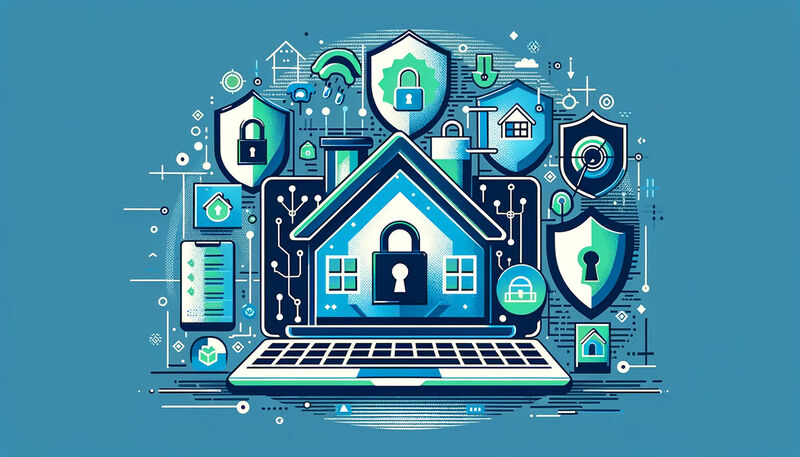Cybersecurity in the Era of Remote Work: Best Practices for Secure Home Networks

The shift to remote work has introduced a new set of cybersecurity challenges, as employees access corporate networks from home. This new dynamic has highlighted the need for robust cybersecurity practices to protect sensitive data and maintain business continuity. This article delves into the essential cybersecurity measures for remote workers, offering guidance on securing home networks against potential cyber threats.
The Importance of Home Network Security
Remote work environments differ significantly from controlled office settings, often lacking the same level of security infrastructure. This disparity increases the risk of cyberattacks, making it crucial for remote workers to fortify their home networks.
Essential Cybersecurity Practices
- Secure Wi-Fi Networks: Ensure your home Wi-Fi is protected with strong encryption, a complex password, and hidden SSID broadcasting to prevent unauthorized access.
- Use a VPN: A Virtual Private Network (VPN) encrypts internet traffic, safeguarding data transmission to and from corporate networks.
- Regular Software Updates: Keep all devices and software updated with the latest security patches to protect against known vulnerabilities.
- Multi-Factor Authentication (MFA): Implement MFA wherever possible to add an extra layer of security to your online accounts and corporate access.
- Phishing Awareness: Be vigilant about phishing attempts, which are prevalent in remote work settings, and educate yourself on how to recognize and avoid such threats.
Creating a Secure Remote Work Policy
Organizations should establish comprehensive remote work policies that outline expected cybersecurity behaviors and protocols. This policy should cover aspects like secure use of devices, data handling procedures, and emergency response plans.
Cybersecurity Tools for Remote Workers
Leverage cybersecurity tools tailored for remote work, such as endpoint protection solutions, secure file-sharing platforms, and network monitoring systems, to enhance your digital defense.
Conclusion
The era of remote work necessitates a heightened focus on cybersecurity. By adhering to best practices for securing home networks, remote workers can significantly reduce their vulnerability to cyber threats, ensuring both their data and their organization's assets remain protected.

